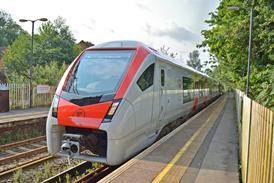EFFORTS to surmount obstacles to international freight crossing Europe’s rail frontiers are making headway at last, though it would be premature to claim that the tide has turned against road competition. UIC reports that European freight tonne-km was 7% higher in 2000 than in 1999, with the international component up by a remarkable 12·5%.
Given the decline in bulk commodities that traditionally provided rail freight’s baseload, hopes for expanding tonne-km rest mainly on logistics, and they are pinned largely on intermodal. Combined transport grew by 6·8% in 2000, which accords with the average annual growth rate of 7% since 1986.
However, UIC reported last month that capacity constraints combined with other factors had led to ’a deterioration in the quality of services’. In an effort to offset this problem, its Combined Transport Group has published quality guidelines dealing with such matters as tracking and tracing, communication with customers, and analysis of performance leading to tailor-made measures to address failures. The objective is to convert these guidelines into a UIC Leaflet, thus guaranteeing a uniform approach to quality issues throughout Europe.
Meanwhile, intermodal operators continue to restructure - often along international corridors - in order to drive down costs and overcome the frontier effect. Shortlines BV, which pioneered open access freight in the Netherlands before venturing across borders, is taking over ECT-Shuttle and forming an independent company called RDP Operating to run trains between Rotterdam and Venlo. DB Cargo is re-acquiring a 50% stake in Kombiverkehr, which in turn has signed a co-operation agreement with Hupac in Switzerland and NSB Freight in Norway. These partners are focusing on north - south flows between Scandinavia and Italy, but have their eyes on Eastern Europe and Spain as well.
In Switzerland, Hupac and L




















